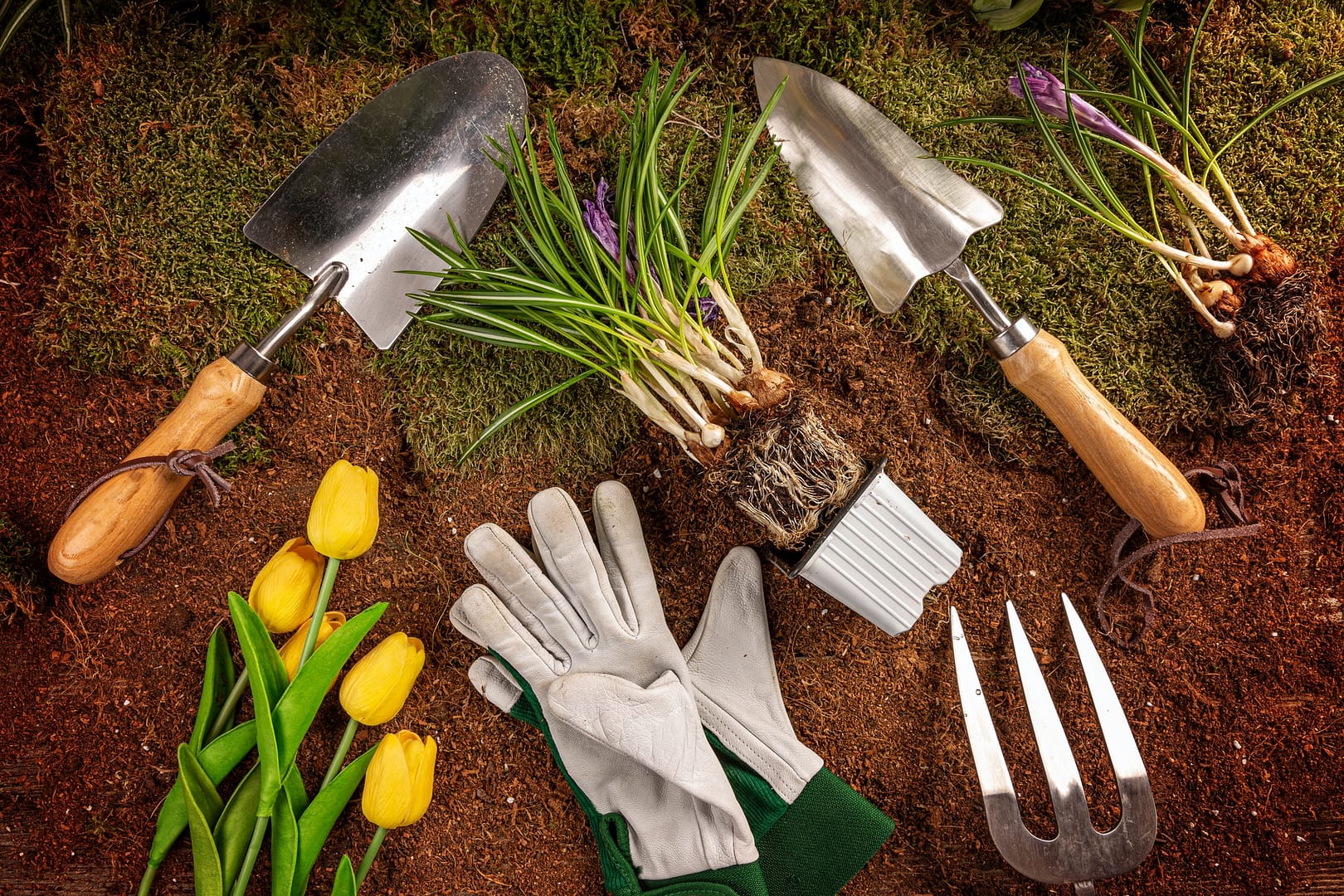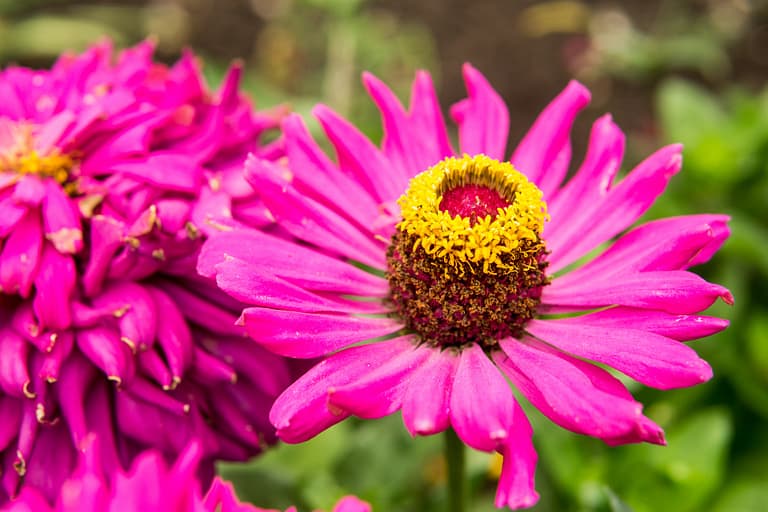Eco-Friendly Gardening in Dallas
Embracing eco-friendly gardening practices in Dallas allows you to create a garden that's gentle on the environment and safe for your family.
By using organic methods like compost and natural fertilizers, you can nurture the soil, support native plant life, and conserve water.
This approach not only fosters sustainability and biodiversity but also minimizes the use of harmful synthetic chemicals.
Ultimately, eco-friendly gardening in Dallas offers a beautiful way to connect with nature while prioritizing the well-being of your loved ones and the local ecosystem.
Key Takeaways
When you practice eco-friendly gardening in Dallas, you're creating a garden that's kind to the environment and safe for your family. By using organic methods like compost and natural fertilizers, you can nurture the soil, support native plant life, and conserve water. This approach fosters sustainability and biodiversity while minimizing the use of harmful synthetic chemicals. Ultimately, eco-friendly gardening in Dallas offers a beautiful way to connect with nature while prioritizing the well-being of your loved ones and the local ecosystem.
Sustainable Gardening Practices
Creating a sustainable garden in Dallas involves focusing on soil improvement and plant selection. Dallas' eco-friendly gardening prioritizes soil health, benefiting the Texas Prairie. To begin, enrich your soil with organic matter such as compost or well-rotted manure. This enhances its structure and fertility, promoting healthy plant growth and reducing the need for chemical fertilizers.
Planting native species adapted to the local climate promotes biodiversity and supports the ecosystem. Embracing sustainable gardening practices in Dallas contributes to green living and environmental advocacy, aligning with the latest environmental news in North Texas. By emphasizing soil improvement and native plant selection, you can create a beautiful and sustainable garden while minimizing environmental impact.
Now, let's delve into the importance of native plants for the Dallas climate.
Native Plants for Dallas Climate
When you plant native species in your Dallas garden, you help the environment and local ecosystem. Texas sage, black-eyed Susan, and Turk's cap are great choices for Dallas because they need less water and maintenance. These plants grow well in Dallas soil and climate. They also promote green living and environmental advocacy.
For a beautiful and sustainable garden that supports the local environment, consider purple coneflower, prairie verbena, and Texas lantana. Native plants also attract beneficial insects and birds, which helps maintain the natural balance of the Dallas ecosystem.
Embracing native plants is a crucial step in creating a thriving garden while preserving the local environment.
Water Conservation Techniques
If you want to promote water conservation in your Dallas garden, you can use rain barrels and drip irrigation systems, as mentioned in the previous section on native plants. These methods not only help save water but also support eco-friendly gardening and green living.
Here are some water conservation techniques to consider:
- Install Rain Barrels: Collect and store rainwater for later use in your garden.
- Set up Drip Irrigation Systems: Deliver water directly to plant roots, reducing water waste.
- Choose Native or Adapted Plants: Select plants that need less water and are suitable for the local climate.
- Use Mulch: Cover garden beds to decrease water evaporation from the soil and maintain moisture levels.
Organic Pest Control Solutions
In your Dallas garden, it's beneficial to introduce natural predators like ladybugs and praying mantises to help control pest populations.
Another eco-friendly approach is to use plant-based repellents through companion planting techniques to deter insects.
These methods reduce the need for chemical pesticides and promote sustainable pest control.
For example, planting marigolds alongside vegetables can deter nematodes and other pests.
This approach not only protects your garden but also supports the local ecosystem.
Natural Predator Introduction
When you start an eco-friendly garden in Dallas, it's important to consider using natural predators as an organic pest control solution. This approach helps maintain a green and environmentally friendly garden without relying on synthetic pesticides.
Here are some tips for introducing natural predators:
- Research Local Predators: Start by looking for natural predators native to Dallas, such as ladybugs, lacewings, and praying mantises.
- Create Habitat: To support these predators, make sure your garden has diverse plants and sheltered areas where they can thrive.
- Nonprofit Resources: Seek guidance on natural pest control from local nonprofit organizations like the Sierra Club in Fort Worth.
- Promote Biodiversity: Introducing natural predators is an opportunity to promote biodiversity and support a healthy ecosystem in your garden.
Introducing natural predators aligns with eco-friendly gardening principles and fosters a safe and sustainable environment.
Next, let's explore the effectiveness of plant-based repellents.
Plant-Based Repellents Effectiveness
Using plant-based repellents like garlic spray, neem oil, or marigold companion planting can help you effectively manage pests while avoiding synthetic fertilizers and harmful chemicals. This promotes eco-friendly gardening and green living in Dallas, supporting a safe and natural environment. These repellents also aid in environmental advocacy and biodiversity conservation in the DFW area. According to the table below, these organic pest control solutions are both effective and environmentally safe, ensuring the health and beauty of your garden. Embracing plant-based repellents is a significant step towards sustainable and eco-conscious gardening practices.
| Plant-Based Repellents | Pest Control Effectiveness | Environmental Safety | Ease of Use |
|---|---|---|---|
| Garlic Spray | High | Very safe | Easy |
| Neem Oil | Moderate | Safe | Moderate |
| Marigold Companion Planting | Low | Very safe | Easy |
Now, let's explore the benefits of composting for soil health.
Composting for Soil Health
Composting is a simple and effective way to improve soil health.
When you compost, you enrich the soil with essential nutrients and promote beneficial microorganisms.
This technique can benefit all gardeners by enhancing the overall quality of their soil.
Additionally, composting helps to reduce waste and supports a more sustainable approach to gardening and agriculture.
Benefits of Composting
Composting is a great way to improve your garden soil. It provides several benefits for your garden and the environment. By composting, you can contribute to eco-friendly gardening practices in Dallas and beyond. Here are the benefits of composting for soil health:
- Enriches the soil with necessary nutrients, promoting healthy plant growth.
- Encourages the growth of helpful microorganisms, improving soil fertility and structure.
- Aids in retaining moisture in the soil, reducing the need for watering and supporting water conservation efforts.
- Reduces methane emissions and helps in reducing waste by diverting organic waste from landfills.
Incorporating composting into your gardening routine not only improves your soil's health but also contributes to a greener, more sustainable community. Join the advocacy for eco-friendly gardening and composting on this educational site and stay updated on environmental news.
Composting Techniques for All
When it comes to gardening, composting techniques are essential for improving soil health and reducing waste. By following these simple composting techniques, you can create nutrient-rich soil amendments while contributing to eco-friendly practices. Let's delve into some essential composting techniques that can benefit your garden and the environment.
Layering: Alternate green and brown materials to ensure proper decomposition. Remember to use gloves when handling organic matter to prevent contamination.
Moisture Maintenance: Keep the compost pile moist, like a wrung-out sponge. Avoid overwatering to prevent the growth of mold and pests.
Turning: Regularly turn the compost pile to aerate and speed up the decomposition process. Use a pitchfork or shovel, and wear a mask to avoid inhaling dust particles.
Implementing these techniques can significantly enhance the fertility and structure of your soil, leading to healthier plants and a more sustainable gardening approach.
For more information on green living and environmental news, visit our educational site.
Compost Use in Gardening
In your Dallas garden, using compost can improve soil health and fertility in an environmentally friendly way. There are several benefits to using compost:
- It enhances soil biodiversity and creates a healthy environment for plant growth.
- It reduces the risk of chemical exposure to humans and wildlife, supporting eco-friendly gardening.
- Compost helps with water conservation and supports the natural ecosystem in Dallas.
- It also enhances the overall health and beauty of your garden, aligning with green living practices.
When using compost, make sure to use high-quality organic material to avoid any harmful chemicals.
For more information on eco-friendly gardening and compost use, visit educational sites like North Texas Nature or seek advice from environmental organizations like Fort Worth Sierra Club.
Incorporating compost into your gardening practices promotes green living and contributes to the conservation of Dallas's natural environment.
Eco-Friendly Garden Design Tips
When creating an eco-friendly garden in Dallas, it's important to focus on choosing native plants and managing water efficiently for sustainable landscaping.
Native plants are better suited to the local climate, soil, and wildlife, promoting biodiversity and reducing the need for excessive watering or chemical treatments.
Consider using a rain barrel or a drip irrigation system to manage water usage, especially during hot Dallas summers.
These steps not only contribute to eco-friendly gardening but also support green living and environmental advocacy in the Dallas community.
For additional tips and resources, you can visit the Fort Worth Sierra Club or the Fort Worth Botanic Garden's educational site.
Frequently Asked Questions
How Can I Make My Garden More Eco-Friendly?
If you want to make your garden more eco-friendly, consider the following practices: composting, water conservation, using native species, opting for organic fertilizers, planting pollinator-friendly flowers, practicing natural pest control, harvesting rainwater, opting for sustainable landscaping, and promoting biodiversity. These practices are essential for creating a healthy and sustainable garden ecosystem. When you prioritize these eco-friendly practices in your garden, you contribute to a healthier environment and support local ecosystems.
What Plants Are Best for a Sustainable Garden?
When creating a sustainable garden, it's important to select plants that can withstand dry conditions and are native to your area. Additionally, using organic fertilizers and practicing companion planting can contribute to the garden's sustainability. Conserving water, preserving soil health, and including pollinator-friendly flowers are also vital. To minimize maintenance, consider incorporating permaculture design principles into your landscaping.
What Is an Eco Gardener?
An eco gardener focuses on using environmentally friendly practices, designing gardens that support the local ecosystem, using native plants, conserving water, using organic fertilizers, practicing natural pest control, reaping the benefits of composting, promoting biodiversity, and maintaining soil health. Eco gardeners aim to create a balanced garden ecosystem that thrives sustainably. For example, they might use rain barrels to collect water for their gardens or plant native flowers to attract pollinators like bees and butterflies. These actions contribute to a healthier environment and support local wildlife.
What Is Sustainability Gardening?
Sustainability gardening focuses on conserving water, maintaining soil health, using organic pest control, planting native species, practicing companion planting, using renewable resources, composting in urban areas, reaping biodiversity benefits, and using energy-efficient tools. It prioritizes the health of the garden ecosystem by promoting environmentally friendly practices. This approach not only supports the environment but also contributes to the well-being of the community by creating a healthier and more sustainable living environment.







